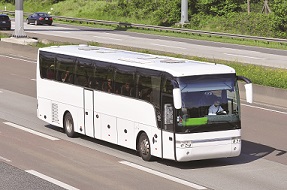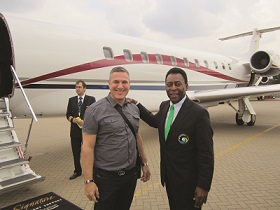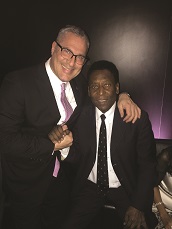

Tales of high-profile athletes missing international competitions due to visa problems are numerous. In April 2012, ESPN reported that numerous Kenyan marathon runners missed that year’s Boston Marathon after the U.S. Embassy in Nairobi denied their visa applications. In another incident, the Cuban national soccer team played six men short in its opening game for the 2015 North American championship tournament as players waited for visas abroad.
If you think these problems only happen to professionals, think again. Youth and amateur athletes can also have their competitive dreams squashed by adverse decisions of U.S. immigration officers. In perhaps the most heartbreaking example, a Ugandan youth baseball team missed out on being the first African team to compete in the 2011 Little League World Series after the denial of several players’ visas (although the team did manage to compete the following year).
These situations illustrate just how devastating visa problems can be for sports event managers and athletes. Fortunately, organizers of international sporting events can take proactive steps to minimize these issues. With early, effective communication to the event’s affected parties concerning their immigration responsibilities, the nightmare scenarios described above just might be avoided.
All non-U.S. citizens must possess the proper entry document for admission to the United States. As will be discussed, for some foreign athletes this may mean only a valid foreign passport. Many other foreign athletes, however, will require the proper visa issued by the U.S. Embassy to compete in U.S. events. This article will review the most common visa categories used by foreign athletes and provide an overview of each visa’s application process.
Certain types of athletes may be able to enter the United States for up to six months as a visitor on a B visa. There are two types of B visas available - the B-2 for visitors for pleasure and the B-1 for business visitors. Amateur athletes will generally use the B-2 visa as a visitor for pleasure. The U.S. Department of State (DOS) defines “amateur” as a person who normally performs without remuneration, other than an allotment for expenses. Almost all student athletes will generally fall into this category, since they receive no compensation.

The application process is the same for both the B-1 and B-2 visas and it is relatively straightforward. Qualifying athletes can apply directly at the U.S. Embassy or Consulate in their home country. This process is different from those other visa categories, which require prior approval by the United States Citizenship & Immigration Services, before the athlete can obtain the visa from the Embassy (more on that process later).
The B-1/B-2 visa application process does include an in-person interview at the U.S. Embassy. At this appointment, the athlete must demonstrate to the visa officer that she qualifies for the requested visa classifications. Visa applicants should also take great care that the submitted documents are consistent with her stated reasons for entering the United States. Consular officers may view an athlete’s contractual agreements as evidence of U.S. employment which is expressly prohibited under the B-2 category, and may lead to delay or denial of the visa’s issuance.
Foreign athletes must also ensure that all documentation submitted to U.S. immigration officers is 100% accurate and consistent with their reasons for travel. If a consular official finds that the visa applicant has withheld key information, or if she presents conflicting documentation, this also could result in visa delay or denial. For instance, the visa denials of the Ugandan Little League team, mentioned above, were caused by “discrepancies” in the youngsters’ visa applications.
The entry process for B-1/B-2 visitors is streamlined for athletes who are nationals of countries participating in the Visa Waiver Program (VWP). A complete list of eligible countries can be found on the website for the Department of Homeland Security (DHS). This program allows qualified athletes to skip the consular appointment and instead prove their qualifications to a U.S. border officer upon entry. Athletes seeking VWP admission must complete an online application through the DHS’s Electronic System for Travel Authorization (ESTA) website at least 72 hours before travel. An entry under VWP allows an athlete to enter for up to 90 days as a B-1 or B-2 visitor.
Professionals performing at a higher level of competition, or those participating in leagues or events longer than six months, will likely require a more specialized visa classification. The most common visa category for such athletes is the P-1A visa, which is reserved for “internationally recognized” athletes and sports teams. A P-1A visa may be approved for a period of up to five years for individual athletes, which is renewable for a maximum of 10 years. Athletes entering as part of an athletic team will be admitted for an extended period of only one year.
 DHS defines international recognition to mean “having a high level of achievement in a field evidenced by a degree of skill and recognition substantially above that ordinarily encountered” and that “such achievement is renowned, leading, or well-known in more than one country.” Evidence of an athlete’s or team’s international recognition can be accomplished by providing a contract with a major U.S. sports league, or if competing in an individual competition, a contract commensurate with international recognition. Additionally, a P-1A athlete or team must provide labor union’s advisory opinion as well as other evidence of the qualifying achievements, such as a statement from the sports media, international rankings, or other honors.
DHS defines international recognition to mean “having a high level of achievement in a field evidenced by a degree of skill and recognition substantially above that ordinarily encountered” and that “such achievement is renowned, leading, or well-known in more than one country.” Evidence of an athlete’s or team’s international recognition can be accomplished by providing a contract with a major U.S. sports league, or if competing in an individual competition, a contract commensurate with international recognition. Additionally, a P-1A athlete or team must provide labor union’s advisory opinion as well as other evidence of the qualifying achievements, such as a statement from the sports media, international rankings, or other honors.
Another visa option available for professional athletes is the O-1 visa, which allows for the admission of “aliens of extraordinary ability” for up to three years. DHS defines extraordinary ability as “sustained national or international acclaim” proven through the submission of substantial evidence of their significant achievements in the sport. As might be imagined, this is a very high burden and only those athletes who have truly obtained mainstream recognition for their accomplishments should consider this category. Notably, whereas the P-1 visa is restricted only to events that have a distinguished reputation and require internationally recognized athletes, the O-1 may be used for any event or competition in the foreign athlete’s or team’s sport.
Additionally, supporting team members and related professionals may seek O-2 visa status to accompany the primary athlete or team. Our office has enjoyed great success bringing athletes’ supporting family members and support staff in this fashion.
Before an athlete can apply for a P-1A or O-1 visa at the U.S. Embassy, the sponsoring entity must first receive approval for the case by filing a visa petition with United States Citizenship & Immigration Services (USCIS) in the United States, an agency within DHS. This can be a lengthy process, with adjudication times exceeding 4-6 months in some instances. USCIS does offer a “premium processing” service in which the agency guarantees an initial review in 15 calendar days for an additional $1,225 filing fee. Athletes who utilize the P-1A or O-1 visas should start the application process at least 6 months in advance of any prospective events.
Managers and organizers of international sporting events in the United States simply must account for the above-described immigration issues when planning their next tournaments or competition. Naturally, each sporting event is unique, and the precise visa options may vary. Proper planning with experienced counsel will not only mitigate the risks faced by your international competitors, but it will also be one less thing for the organizer to worry about.
Note from the author: Adam W. Moses contributed to this article.

